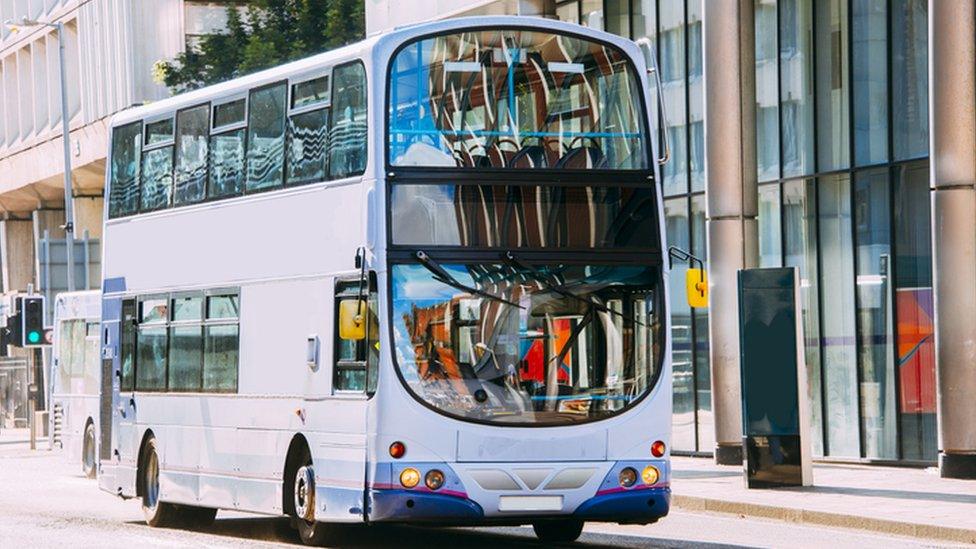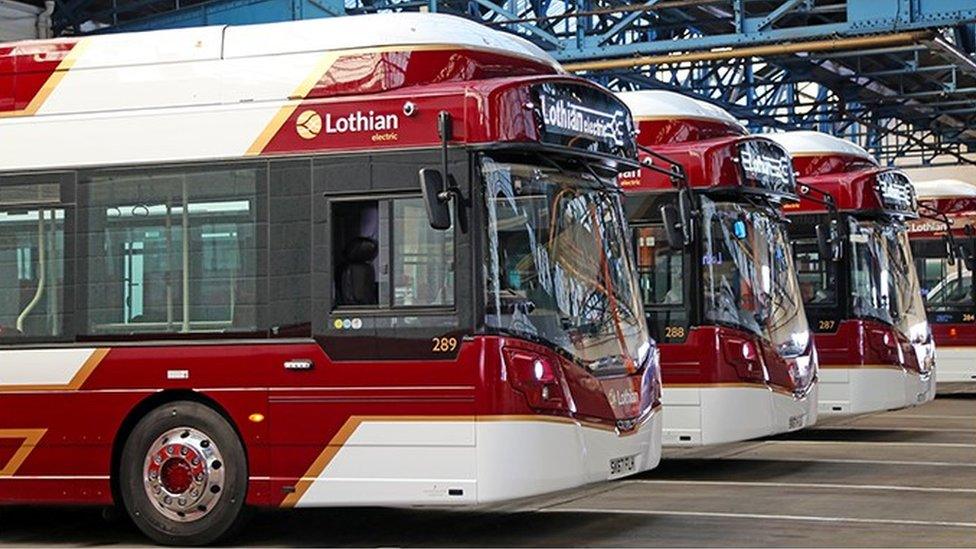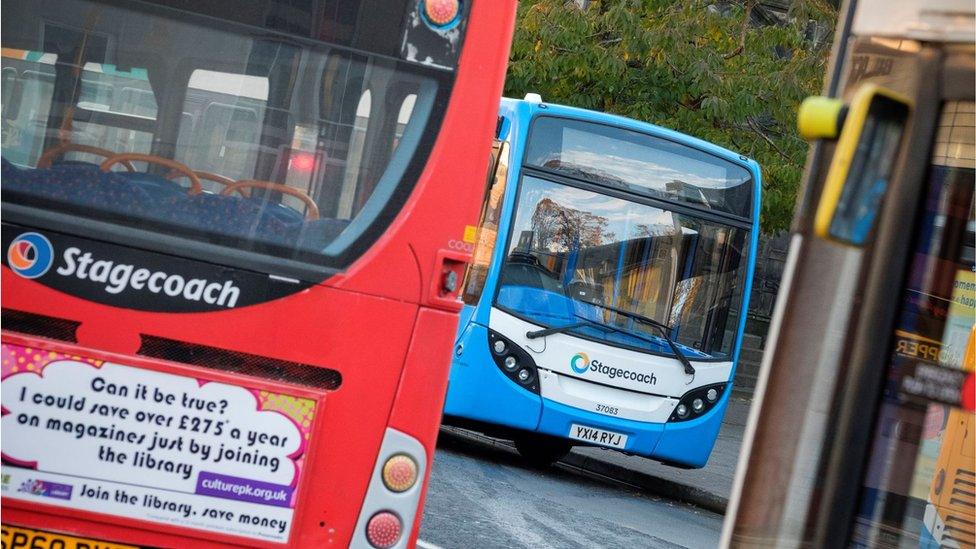Scottish government urged to introduce cap on bus fares
- Published

The Scottish government is being urged to introduce a cap on bus fares.
More than 130 bus operators in England have signed up to limit fares to £2 for the first three months of the year.
Scottish Labour wants Scotland to follow suit to stop people seeking alternative transport.
The Scottish government said its concessionary bus travel schemes were the most generous in the UK, with free travel for under-22s, over-60s, and people with disabilities.
Transport Scotland statistics, external show fares in Scotland have increased by 6% in real terms over the last five years, compared with a UK rise of 3%.
The figures also show that passenger journeys in Scotland fell by 69%, and in Britain by 66% over the past five years.
Scottish Labour's transport spokesman Neil Bibby claimed unreliable services and unaffordable fares were forcing people away from buses.

There are fare discrepancies between similar journeys in different cities
He said: "The bus services people need every day to get to their work and move around their communities are on the brink of collapse.
"As a result, more and more people are being forced into cars by unreliable and overpriced services."
Mr Bibby added that in order to get people back onto buses, Scotland should follow England's lead in capping fares to make public transport affordable.
In December, it was announced more than 130 bus operators outside London would begin capping single adult fares at £2 from 1 January to 31 March as part of a government-funded scheme to help people save money.
National Express and Stagecoach were among those taking part. Single local bus fares in England cost £2.80 on average but can exceed £5 in rural areas, the UK government said.
Manchester, Liverpool and West Yorkshire have already introduced £2 caps as part of longer-term schemes.
Mr Bibby said: "In Edinburgh, council-owned Lothian Buses' single fares are just £1.80, but elsewhere in Scotland passengers are paying rip-off fares to private bus companies, such as £2.65 for a two-mile journey in Greater Glasgow.
"Our communities, our economy and our planet need a working bus network which is affordable and reliable. Services will continue to decline unless we take serious action and provide better, cheaper buses."

National Express and Stagecoach were among operators who signed up to the £2 fare cap in England
A Transport Scotland spokeswoman said: "We invest £300m annually to deliver free bus travel for all children and young people under 22, as well as for eligible disabled people and everyone aged 60 and over.
"This means Scotland has the most generous concessionary fare scheme in the UK, with more than 2.3 million people eligible for free bus travel - encouraging more people to choose to take the bus and helping us meet our net-zero targets by encouraging a shift away from cars.
"We are progressing the Fair Fares Review to ensure a sustainable and integrated approach to fares that supports the long-term viability of our public transport system as we recover from the pandemic."
The spokeswoman said the review would consider both the cost and availability of services and the range of discounts and concessionary schemes which are available on all modes of transport including bus, rail and ferry.
She added: "It will develop and assess options to create a fairer, more transparent system of fares across all modes that maintain and increase affordability for those who need it most."